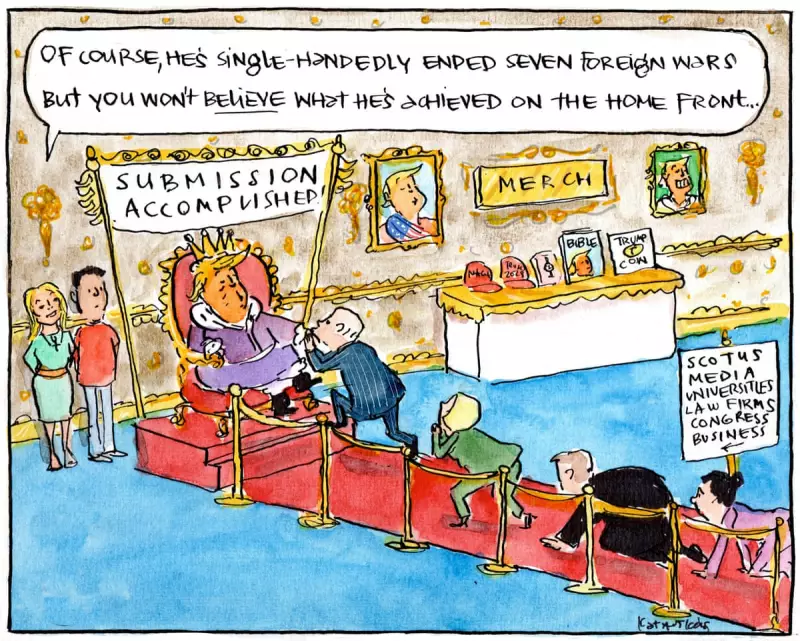
In a political landscape often defined by partisan division, a remarkable reassessment of Donald Trump's presidential legacy is emerging from an unlikely quarter: his record on international peace and diplomacy.
The Architect of the Abraham Accords
The cornerstone of Trump's unexpected peacemaker credentials rests on the groundbreaking Abraham Accords. This series of normalization agreements between Israel and several Arab nations—including the United Arab Emirates, Bahrain, and Morocco—represented the most significant shift in Middle Eastern diplomacy in decades.
Through relentless personal diplomacy and leveraging economic incentives, the Trump administration achieved what multiple predecessors had failed to accomplish: creating a tangible framework for cooperation between historical adversaries in the world's most volatile region.
North Korean Diplomacy: Unconventional Engagement
Trump's approach to North Korea broke with decades of established foreign policy protocol. His unprecedented face-to-face meetings with Kim Jong-un, while criticised by many establishment figures, marked the first time a sitting US president had engaged directly with North Korean leadership.
Though denuclearization remains incomplete, these dramatic summits de-escalated tensions that had brought the Korean peninsula to the brink of conflict, opening channels of communication that had been frozen for generations.
A Doctrine of Deterrence Through Strength
The Trump administration's 'peace through strength' philosophy emphasised military build-up as a deterrent rather than an offensive tool. This approach, supporters argue, created conditions where adversaries thought twice before challenging American interests, thereby preventing conflicts rather than starting them.
His administration avoided initiating new military engagements while simultaneously applying maximum pressure campaigns that brought negotiating partners to the table without resorting to armed conflict.
Challenging Conventional Wisdom
What makes Trump's potential designation as a peacemaker so controversial is how thoroughly it contradicts the prevailing media narrative of his presidency. The bombastic rhetoric and Twitter diplomacy that characterised his time in office obscured, some analysts now suggest, a strategic approach to conflict avoidance.
This reassessment forces a uncomfortable question for foreign policy establishments: could unconventional methods achieve conventional goals more effectively than diplomatic orthodoxy?
The Legacy Question
As historians begin to assess the long-term impact of Trump's presidency, his peacemaking achievements present a complex puzzle. The agreements he brokered have largely held, creating new regional alliances that continue to shape Middle Eastern politics.
Whether this record qualifies him as 'America's greatest peacemaker' remains hotly debated, but what seems increasingly clear is that his approach to international relations—however unorthodox—produced substantive diplomatic breakthroughs that eluded his predecessors.





